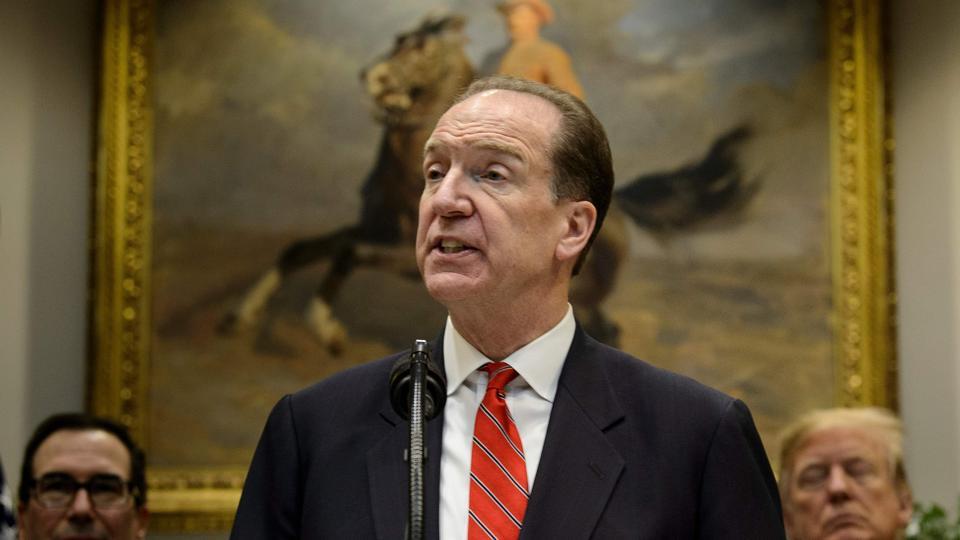The World Bank has reported that Nigeria, Kenya, Côte d’Ivoire, and other sub-Saharan African countries raised over $17 billion from bond issuances in 2018. This was described as a landmark development by the global development bank.
This information is contained in a report titled “Africa Pulse”, which was produced by the Office of the Chief Economist for the African Region at The World Bank. The report was recently released during The World Bank‘s joint spring meeting with the International Monetary Fund in Washington DC.
During the meeting, The World bank revealed that over $17 billion had been raised from bonds by sub-Saharan African countries. The World Bank and the IMF also warned these countries to be mindful of their increasing debt vulnerabilities.
2018 marked a record year for international bond issuances: According to The World Bank, 2018 marked a record year for international bond issuances in Sub-Saharan Africa. Between 2013 and 2017, countries in the region (excluding upper-middle-income countries) issued, on average, a total of $4.5 billion per year, with an average issuance size of $1 billion.
The World Bank went further to disclose that in 2018, bond issuances totalled more than $17 billion, with the average issuance rising to nearly $3 billion.
In addition to the increase in issuance volumes, several countries (including Nigeria, Côte d’Ivoire, and Kenya) were able to extend maturities to 30 years.
Nigeria received over $9.5bn for its $2.86bn Eurobond: The Federal Government of Nigeria, in November 2018, said it received a combined offer of over $9.5 billion for its $2.86 billion Eurobond. The bond represents Nigeria’s sixth Eurobond issuance, following issuances in 2011, 2013, two in 2017 and one in early 2018 and its first triple-tranche offering.
In addition, the Ministry of Finance noted that the offer comprised of $1.18 billion seven-year series, $1 billion 12-year series and a $750 million 30-year series.
It also mentioned that the Government intends to use the proceeds of the bond to fund its fiscal deficit and other financing needs.
Mrs. Zainab Ahmed, the Minister of fiance, also stated during a ministerial briefing at the World Bank/IMF spring meetings that Nigeria will issue N15 billion green bond later in the year after successfully raising N10.92 billion in December 2018.
Nigerian bond market is attractive to investors: According to CBN‘s Godwin Emefiele, Nigeria attracted bonds worth $6 billion after the elections, a sign that the Nigerian bond market remains attractive to investors.
He continued that following the successful conduct of the general elections in February 2019, over $6bn has come into the local bond market, indicating continued confidence in the strength of the Nigerian economy by investors.
He further added that Nigeria’s bond has continued to top the chart due to the stability of the Investors and Exporters’ FX Window rate and the yields being high by emerging-market standards.
Things might get worse if proceeds are not probably managed: In as much as things are moving on well now for many African countries regarding their bond issuances, The World Bank had warned sub-Saharan African countries of increasing debt levels and its attendant vulnerabilities.
According to the Africa’s Pulse reports, as of end-2018, nearly half of the countries in sub-Saharan African covered under the Low-Income Country Debt Sustainability Framework were at high risk of debt distress or in debt distress, more than double the number in 2013. In addition, safety margins have decreased in several countries rated as at moderate risk of debt distress.
During the Global Financial Stability Report at the spring meetings, the Financial Counsellor and Director, Monetary and Capital Markets Department, IMF, Tobias Adrian said;
“Nigeria has been borrowing in international markets but we worry. So, on the one hand, that is very good because it allows Nigeria to invest more; but on the other hand, we do worry about rollover risks going forward.
“At the moment, funding conditions in economies such as Nigeria and other sub-Saharan African countries are very favourable but that might change at some point. And there is a risk of rollovers and there is the risk of whether these needs for refinancing can be met in the future.”
The finance minister said there was no cause for alarm, since the country’s total debt profile as of December 31, 2018, stood at N24.387 trillion.
